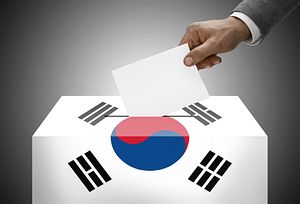What do South Korea’s liberal party and the British Labour Party have in common? Answer: losing strong bases of support and suffering crises of identity.
Riding on a post-referendum popularity surge, the Scottish National Party (SNP) secured 56 out of 59 Scottish seats in the latest U.K. national election. The Labour Party, which held 41 seats in Scotland in 2010, now holds just one. Clearly, the SNP’s gain was Labour’s loss. The loss prompted party leader Ed Miliband’s resignation and left the party to reconsider its place in Britain’s rapidly changing political landscape.
Might something similar occur for South Korea’s liberal party, New Politics Alliance for Democracy (NPAD), in the Honam region (North and South Jeolla provinces)?
Perhaps something similar, but not exactly the same; the conditions are very different. There isn’t any real push for a sovereign Honam in the way that there is Scotland, nor is there a Honam National Party – not yet, anyway. Following his electoral victory in the recent Gwangju by-election, Chun Jung-bae (currently a political independent) hinted he might form a “New Honam Party,” a claim he has since downplayed, saying he supports reform of the existing liberal party. A former senior adviser and three-term NPAD lawmaker, Chun is one of several former high-ranking liberal party members to defect.
High-profile defections like Chun’s are part opportunistic, part ideological. According to the Korea Herald, Chun intends to form “an alliance of ‘new DJs’” who he thinks will better represent the citizens of the region. “DJ” refers to Kim Dae-jung, longtime opposition leader and former president of South Korea, and “new DJs” is a way of referring to younger members of the so-called pro-Kim camp within the liberal party.
The liberal party is split (imperfectly) into two factions: pro-Roh Moo-hyun (another former liberal party president) and pro-Kim. Tellingly, current NPAD party chairman Moon Jae-in is seen as the leader of the pro-Roh camp (Moon was chief of staff during Roh’s presidency). For pro-Kim liberals, running against the NPAD candidate is a way of pushing back against the influence of the pro-Roh camp. The divide between the two camps is primarily about political power and control within the party; it is quite difficult to point to concrete ideational or policy cleavages between the two groups.
There is, however, another dimension to liberal politics in Honam, what is referred to in the Korean media as Honam minshim, or the popular sentiment of Honam. The region, located in the southwest corner of the peninsula, has an identity, political and otherwise, that separates it from the rest of the country. Discriminated against by Park Chung-hee, it was a hotbed of student-led opposition and anti-government protests; in May 1980, an uprising in then-provincial capital Gwangju was violently suppressed. There isn’t the same sense of independence that one might find in Scotland, but there is certainly a strong sense of difference. For a long time, the mainstream liberal party under the leadership of Kim Dae-jung (who is from South Jeolla) politically represented this difference. This might be changing.
The liberal party in a post-Kim era is attempting to redefine itself, but it appears that in the process it is losing support in Honam, its historical stronghold. This is partly because of the party’s failure to campaign on a winnable, unifying message and partly because times (and political interests) are changing.
The result is popular discontent among voters and division within the liberal party. This is the context of Chun’s campaign and his (perhaps fleeting) consideration to form a regional party. Whether he chooses to actually do that or, alternatively, work to reform NPAD from within is still an open question. Given the difficulty Chun would have in getting nation-wide support for a regional party, such a move seems unlikely (even a plurality of citizens in Honam opposed it). More likely is a struggle to reform NPAD along some programmatic idea with which South Korea’s electorate can identify. Until then, whither NPAD, like the British Labour Party?

































